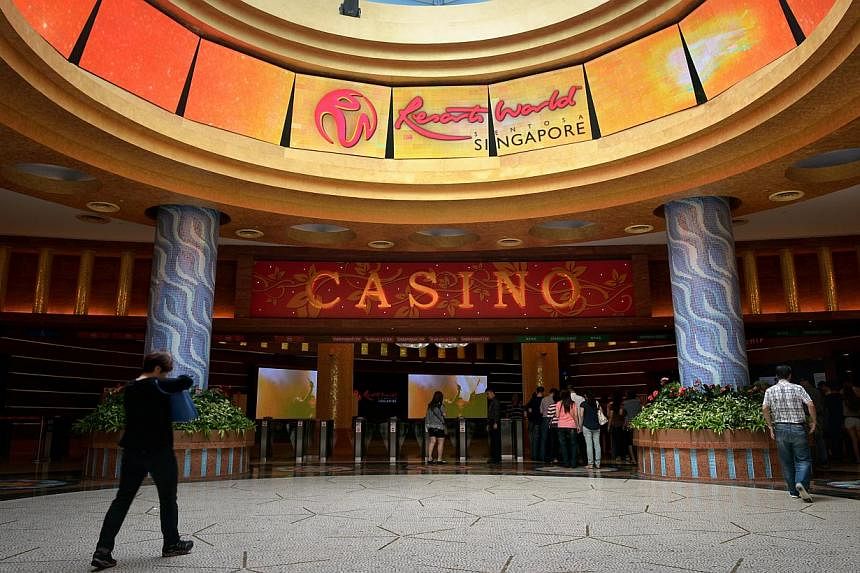Mr Vu Van Quang is 29 years old and works as a project manager in Ho Chi Minh City. On most weekends though, he can be found at Le Macau casino in the Cambodian border town of Bavet.
"I sometimes spend US$2,000 to US$3,000 at one go," he says. "When I am there, I also see lots of small gamblers from Vietnam. They blow US$500 to US$1,000 every time."
Vietnam's communist government is hoping to keep some of that cash within its borders, as well as to increase tourism, by reviewing the long-standing ban on locals entering casinos. And it is closely examining Singapore's casino model.
"They like what they see in Singapore," says government adviser Augustine Ha Ton Vinh, who estimates that Vietnam is losing US$800 million (S$1 billion) every year in tax revenue from such cross-border gambling. "If you can control gambling addiction while making international tourists spend more and stay longer, why not?"
After holding out for decades, Singapore opened the first of its two casinos in 2010 as part of integrated resorts aimed at drawing tourists as well as international conventions. Singaporeans pay a $100, 24-hour entry levy or a $2,000 annual levy.
Hanoi introduced a draft decree last month that would lift the ban on its citizens entering local casinos. It is understood that there are discussions to keep out patrons who have criminal records or bad debt, or those whose salary is below a certain level.
Allowing locals to patronise casinos would go some way towards convincing foreign gaming operators such as Las Vegas Sands and NagaCorp that it is feasible to sink in the billions of dollars of investment coveted by Hanoi, say analysts.
"There are very few examples in the world where casinos have done well when they rely only on overseas visitors," says Mr Paul Bromberg, chief executive of gaming consultancy Spectrum Asia.
Unlike Singapore, Vietnam would not be starting from naught. It already has seven casinos, mostly along its land borders, catering to foreigners, especially Chinese. It also has a number of gaming parlours within high-end hotels.
Last year, Vietnam's largest casino to date opened at the Grand Ho Tram Strip, a beachfront integrated resort a two-hour drive from Ho Chi Minh City in the south. The government is hoping for another casino in the Van Don special economic zone, another seaside strip in north-eastern Vietnam.
Billionaire Dao Hong Tuyen had planned to partner Australian firm ISC Corporation in a US$7.5 billion venture involving casino and convention centre and marina projects in Van Don and the nearby Tuan Chau island, but the firm has since pulled out.
A series of other departures by international players in recent years has darkened the landscape. Las Vegas-headquartered MGM Resorts terminated the contract to manage the Grand Ho Tram Strip just before its opening last year. In 2012, Malaysian operator Genting pulled out of a venture to build an integrated resort in central Vietnam.
Analysts say the country needs a stronger regulatory framework to prevent money laundering, as well as to relook its minimum investment requirement of US$4 billion, to attract serious investors.
Mr Andrew Klebanow, a partner at US-based Global Market Advisors, calls the figure "arbitrary".
"There is no market to support a US$4 billion investment," he says. "Not in Vietnam. And not in most places in the world."
Vocal opponents of easing the casino entry ban say it would only create a spiral of social problems, entry barriers notwithstanding.
"Vietnam is not Singapore," says the chief executive of investment banking firm TNK Capital, Dr Tran Vinh Du. "We don't have a comparable transparent system. Even with a similar barrier, corruption will make the barrier ineffective."
Critics have also raised doubts over the actual outflow caused by Vietnamese gambling overseas, saying the plan will only help developers by raising land values.
Proponents, meanwhile, argue that any extra revenue would not hurt. Vietnam's growth - which stood at 5.25 per cent in the second quarter - has been weighed down by high levels of bad debt.

